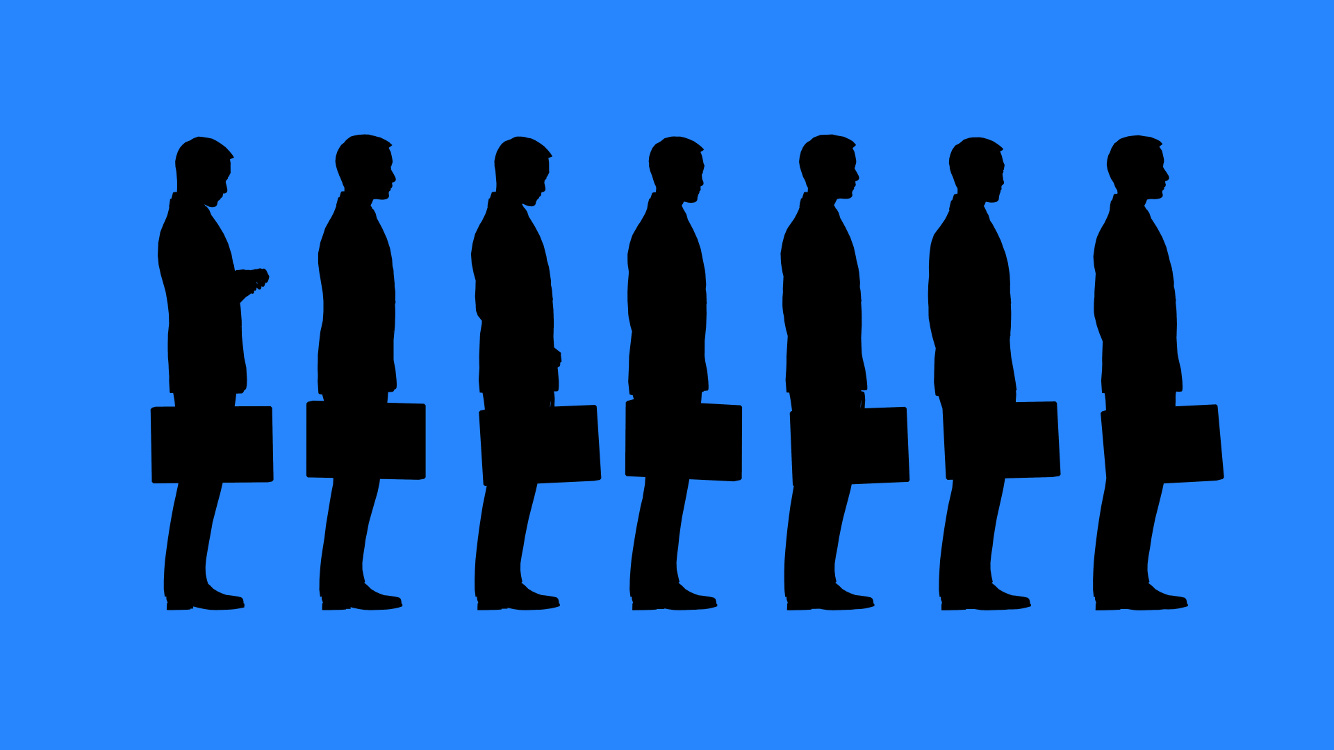History
The Elites and Inequality: The Rise and Fall of the Managerial Class

In analysing the political upheavals across Europe and America in the past several years, it has become customary to talk about ‘the elites’ and about ‘inequality’. This article will explore both concepts in political and socio-economic analysis, and posits that certain elites in the West need narratives of inequality to maintain their stranglehold on power. It concludes by suggesting that we are witnessing the passing of an old and increasingly irrelevant class of elites, whose wild attempts to cling onto the old order will see them lash out in unpredictable directions.
When the political left talk about elites, they typically refer to ‘the haves’ (as opposed to the ‘have nots’), that is the top 1% of income earners, a concern which has a legacy in outmoded and demonstrably incorrect Marxist analysis. Thus, here in the UK, Jeremy Corbyn’s far left Labour party routinely trot out the old line that ‘the rich keep getting richer while the poor are getting poorer’. However, even The Guardian – albeit through gritted teeth – pointed out in 2017 that the UK was at a thirty-year low for income inequality. The BBC also fact-checked Corbyn’s repeated claim and found it to be false. As did the tabloid paper The Sun, drawing data from a study by the Institute of Fiscal Studies. Given these facts, why are we repeatedly told that inequality is the most pressing issue facing us in Britain and America today?
At the Institute of Economic Affairs, Kate Andrews and Stephen Davies have found that while the gap between the top 10% of the income distribution and the rest of income distribution has not increased, the gap between the top 1% and the next 9% has increased. In other words, concerns about inequality in the media are, in fact, most often the concerns of the top 10%. Hence, witness the heart-breaking tale told by Alissa Quart in The Guardian of a couple who live in the Bay Area, San Francisco, earning $150,000 a year who – shock and horror – have to commute to work and cannot afford a ‘cleaning lady’.
Viewed in this light, many concerns about ‘rising inequality’ and ‘relative poverty’ are glorified linguistic inversions of upper-middle-class ‘Keeping up with the Joneses’. Why should the concerns of these people over index so dramatically in the public consciousness? It is because these are exactly the people – that is, those who are in the top 10% but not in the top 1% of earners – who write our newspapers, run the civil service, occupy professorships at our universities, and ultimately those who go into politics. Their intuition – no more than a gut feeling, cchanneled by a mixture of confirmation bias and hubris – is post-hoc rationalised into an ‘urgent’ issue that must be addressed by ‘society’.
This concern with general inequality is frequently, of course, coupled with a concern for income disparities between particular groups of people categorised by gender, race or whatever other measure. It is fashionable to attribute gaps to ‘discrimination’, even if such discrimination is statistically impossible.
This was the case, for example, when Uber published data on 1.8 million drivers over 740 million trips which revealed a 7% gender earnings gap despite the fact its algorithms are ‘gender blind’. It turns out male and female Uber drivers make different choices, down to how fast they drive, how long they drive for, and where they drive. As Thomas Sowell has shown in his recent book, Discrimination and Disparities, claims of discrimination seldom stand up to the scrutiny of multifactorial analysis. This was much the same point that Jordan Peterson was making in his now infamous interview with a flailing Cathy Newman on Channel 4 News, which has been viewed at the current time by over 9.4 million people.
Yet, despite the persistence of these facts, the confirmation bias and hubris of a top 10% obsessed with the idea that inequality is the most pressing issue facing us today will not be suppressed. As I have argued elsewhere, the incentives of groupthink are such that facts and evidence literally do not matter if such a group holds certain narratives to be sacred.

When those who typically oppose the left talk about elites, they most often refer exactly to these chattering classes: the political class, the media, the civil service, and those in academia. In classical elite theory, Vilfredo Pareto drew on Niccolò Machiavelli to distinguish between two types of elites: lions, who emphasise their prowess, and the strength of their character, and foxes, who rely mostly on their cunning. Pareto argued that in Western liberal democracies, foxes have come to predominate. Hugo Drachon, writing in the left-leaning publication, The New Statesman, has argued that we are currently witnessing the return of the lions. Evidence comes in the form of Donald Trump, who is, uncharacteristically for a modern Western leader, more in the mould of the lion than the fox.
The famous ‘Pareto principle’, or 80-20 rule, is often invoked to explain wealth distribution (i.e. that 20% of the people will hold 80% of the wealth). But in many cases, it is more useful to describe another phenomenon that can be predicted by this rule — productivity. For example, in most work settings, 20% of the staff will do 80% of the work. Often, and somewhat ironically, this most productive 20% will likely come to be resented rather than cherished by the less productive 80%. However, for our purposes, in defining ‘the elite’, Pareto argued that there will always be an elite 20% of the population to rule over the remaining 80%. This elite 20%, in turn, is subdivided into a governing elite who hold official positions of power, and a non-governing elite who wield disproportionate cultural influence.
Pareto’s idea was adapted by Gaetano Mosca in The Ruling Class who accounted for the persistent rule of the minority over the majority by the fact of their organization:
The dominion of an organized minority, obeying a single impulse, over the unorganized majority is inevitable. The power of any minority is irresistible as against each single individual in the majority, who stands alone before the totality of the organized majority. At the same time, the minority is organized for the very reason that it is a minority. … members of a ruling minority regularly have some attribute, real or apparent, which is highly esteemed and very influential in the society in which they live. (pp. 50, 53)
The empirical data seems to support Mosca’s claims. For example, in his classic The Logic of Collective Action, Mancur Olson showed that contrary to traditional concerns that democracy would tend towards the tyranny of the majority, in practice organized special interest groups are likely to press their concerns onto everyone else. Olson shows that not only is collective action by large groups difficult to achieve, even when they have interests in common, but situations could occur where the minority, bound together by concentrated selective incentives, can dominate the majority. In such circumstances, a ‘foxy’ elite might be able to string along public support for their special interests by fuelling grievance narratives, even if their time in power serves to exacerbate rather than solve the problems of said public.
This has been some aspect of the arguments that Candace Owens has put forward, now, of course, enhanced by an endorsement from Kanye West. According to this argument, the Democrats in the USA have cynically exploited black voters to push their own special interests. Let us not forget Kayne West campaigned to improve conditions of inner-city life in Chicago, which is currently – like Detroit before it – experiencing sharp decline under Democrat rule. Chicago’s authorities seem to be driving away business, jobs, and therefore people: it has posted a net loss of population for three years running. Yet the voting public in Detroit and Chicago keep electing the elites who oversaw such dismal changes in fortune. And, with Kanye West in the past couple of weeks, we have witnessed what happens if anyone tries to speak out against this. He was hounded, mocked, slandered, and criticized relentlessly for doing so.
Yet perhaps it is a marker of the declining ability of the elites to influence outcomes that when he sent his tweet supporting Candace Owens, Kanye had 13.4 million followers on Twitter, and at the time of writing – just over a week later – he currently has 28.2 million followers. I suppose that’s ‘dragon energy’ for you.
Perhaps Los Angeles will be the next city to go into terminal decline under the rule of their Democrat elites. California has seen surges in crime recently. It has also experienced capital flight: total disinvestment events between 2008 and 2015 were 1,687 while in the same period it ranked 48th out of 50 states for new investments. Meanwhile, rather than actually addressing these problems, its ruling elites are pushing almost absurdly Orwellian public policies. We can see parallels in Sadiq Khan’s London, in which the mayor responds to soaring crime rates with diversity panels, pledges to ‘fight hate crime’ online and by virtue-signaling about Donald Trump – if people were not being killed every day, such self-parodic behaviour would almost be funny.
According to the Cook Partisan Voting Index, California is one of the top three most staunchly Democrat states, but it ranked bottom for fifty states in the recent quality of living index. Like the Labour Party in the UK, the Democrats have constantly maintained the importance of narrowing inequality. Yet, despite running California since 1992, the state’s income inequality is second only to that other great Democrat stronghold, New York. When you consider that these two states also have by far the highest per capita welfare spends in the US, and have also pursued open-border policies to encourage people from poorer countries to join them, such statistics are scarcely surprising. The incentives are such that medium-sized firms and middle-class families are driven out to more business-friendly places like Texas, leaving only the mega-rich and people on welfare benefits who receive fixed low incomes.
Despite these facts, elites from these areas perpetuate the idea that they provide a utopian blueprint for the rest of the United States – nay, the world – to follow. And people in those areas – some might say the victims of their policies – continue to vote for them.
Writing after Pareto and Mosca, Robert Michels crystallised the analysis of elites into the ‘iron law of oligarchy’. In this reading, democracy itself is a sham because the incentives of bureaucracy are such that they tend towards corruption. In other words, although the elites may claim to be acting in the common interest, in fact they seek only to maintain their own power. Michels also pointed out that, as such, the form of government does not change this principle – as one might see if we compare Russian leaders from different historical periods: Tsar Nicholas II, Joseph Stalin, Vladimir Putin. In each case, all that took place is what Pareto called ‘the circulation of the elites’: the swapping of one set of elites for another. Since, in this view, such elites are structurally inevitable, the best-case scenario – as Joseph Schumpeter outlined – is for a choice between competing elites.
However, James Burnham, who synthesised the leading exponents of classical elite theory in The Machiavellians, came to see liberal democracy as being fatally compromised by the rise of the bureaucratic managerial class. George Orwell captures the thrust of his analysis in a famous essay:
[The managerial class] are not managers in the narrow sense, but scientists, technicians, teachers, journalists, broadcasters, bureaucrats, professional politicians: in general, middling people who feel themselves cramped by a system that is still partly aristocratic, and are hungry for more power and more prestige. These people look towards the USSR and see in it, or think they see, a system which eliminates the upper class, keeps the working class in its place, and hands unlimited power to people very similar to themselves. It was only after the Soviet régime became unmistakably totalitarian that English intellectuals, in large numbers, began to show an interest in it.
While Burnham’s predictions may have taken time to come to fruition, I posit that a ‘Managerial Revolution’ did take place in Britain and America sometime after the Second World War, and became most marked during the era of Tony Blair here in the UK and Bill Clinton and George W. Bush in the United States. In The Abolition of Britain, Peter Hitchens mourns the England he knew as a boy after witnessing it go through something like the Chinese Cultural Revolution, which went into accelerated overdrive, enforced from the top down, with the election of Blair in 1997.
It seems to me that by this point ‘the managerial class’ had become ‘the elites’ in the West. The middling sort will naturally try to create a social order that puts their own interests on top. Hence, as David Goodhart documents in The Road to Somewhere, the paths to ‘achievement’ and ‘success’ have become increasingly narrow and academic, while traditional trades and vocational pursuits have been widely disparaged. The only road sold to the young is the one that follows from state schools to universities and then into city jobs. In ‘The Lonely Robot’, a documentary from 2007, Adam Curtis, shows how managerial thinking dominated the Clinton, Bush, and Blair years across all aspects of society. This period embedded the egalitarian political correctness that has recently turned toxic into every institution of the public sector and most major corporations.
In this article, I have suggested that, in the 90s and 2000s, we saw the near-complete capture of cultural and political power by the managerial class, who became a new elite – in the truest sense of the word. One key strategy for maintaining power throughout this time has been to highlight ‘inequality’ in order to manufacture outrage and therefore majority consent to their minority rule. Because these people conquered every institution, including the political parties (including those nominally against utopian visions of social leveling) and judiciary, democracy itself started to break down and made people wonder if elections had become meaningless.
What is currently being decried as outbreaks of ‘populism’ by those very elites is simply the majority signaling that the managerial class have had their time. Every day in the media and in our universities, we are seeing the spasms of an old and increasingly irrelevant regime whose power is being challenged for the first time in maybe thirty years, if not longer. They will not go without a struggle – and, as history has shown, they always fight dirty while facts have practically no bearing on their conclusions. The attacks will become wilder, the voices more shrill, the erratic behaviour ever more unpredictable – but in the end, as with every set of elites, they will be replaced.





